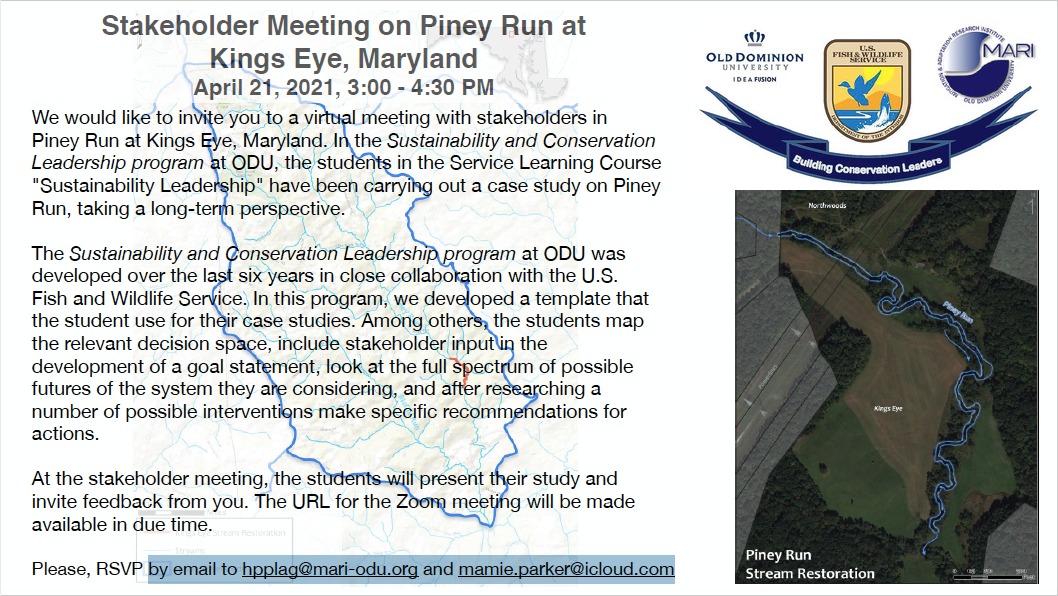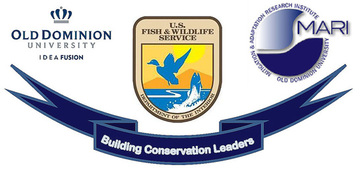Introduction
Creating a more sustainable society presents a serious challenge and at the same time an enormous opportunity. Most sustainability-related challenges present wicked problems to society and can best be addressed in a participatory collaborative approach. The students in this course gained experience in participating in such an effort focusing on a real-world problem.
The real-world problem addressed in this course relates to the Piney Run watershed in Baltimore County. The owner of a large area in the Piney Run aims to develop a regenerative strategy for the watershed. The students will cary out a case study using the MARI case study templete with the goal to make recommendations on how to approach the regeneration of watershed.
The problem will be tackled using a transdisciplinary collaborative approach. A core element of this approach is a participatory modeling effort. Each student is representing a relevant stakeholder group and bringing the views, interest and knowledge of this group into the participatory modeling effort. By doing this, the students take leadership for the groups they represent and at the same time integrate into the participatory and collaborate deliberations about the wicked problem. Considering all aspects of balancing the needs of thriving communities and healthy ecosystems in a systems thinking mindset introduces them to complexity. Their effort to develop conceptual and stock and flow models (SFMs) that represent all relevant stocks and flows and the essential variables that are important for impacting the trajectory of the system of systems model helps to develop their skills in addressing the complexity inherent to real-world problems.
Sustainability also requires foresight with respect to the wide spectrum of possible futures, and the students' efforts to develop this foresight utilizes a scenario-based approach to explore the spectrum of possible futures under climate change and a dynamic development of population and economy. Based on an understanding of the relevant decision space for the watershed considered, the students will develop a set of possible interventions to ensure a trajectory of the area towards the desirable future of thriving communities embedded in a healthy environment. Finally, they will make recommendations for viable interventions.
|
Learning By Experience: Reflections of the Students
The course is part of a tripple loop of learning by experience. In the first loop in the 466W/566 courses, students have been carrying out individual case studies of real-world wicked problems. By doing so, they got introduced to the case study template and the transdisciplinary approach to wicked problems, which requires systems thinking. In 467/567, they go through the second loop in a service learning setting, in which the students work as a group on a case study of a societal problem for a stakeholder. The third loop is the subsequent internship, in which the students again cary out an individual case study of a problem relevant to the host institution.
In all three loops, the students prepare individual reflections on the learning experience and the outcomes for them personally. In the 467/567 courses, these reflections include a reflective video and personal written reflections.
The Case Study Project
In Spring 2021, the service learning project will focus on the problem of regenerating a watershed. Two location will be considered in a comparative case study. One location is the Pinney Run at Kings Wye in Baltimore County. The other location is a local watershed (tbd). More information will be available here shortly.
Case Study Report
The case study report prepared in collaboration of all students provides recommendation for a regenerative approach to the watershed.
Stakeholder Meeting

|

